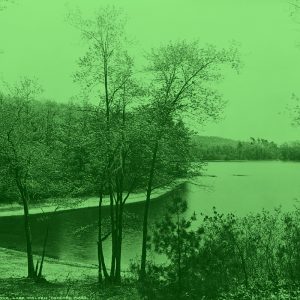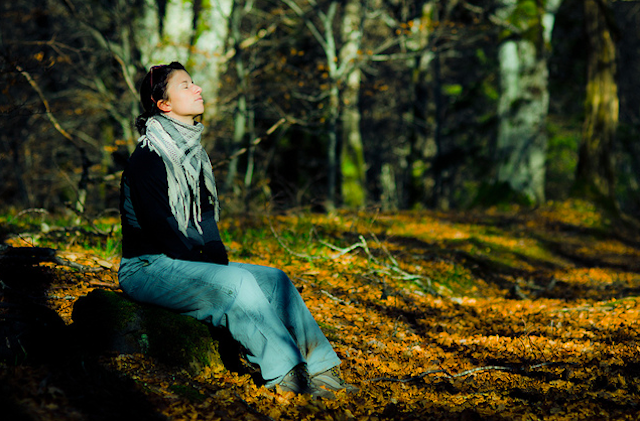Translations dictionary
Waldeinsamkeit
[vahyd-ahyn-zahm-kahyt]
What does Waldeinsamkeit mean?
Waldeinsamkeit is a German word that refers to the feeling one has while being alone in the woods, usually a sublime or spiritual one.
Where does Waldeinsamkeit come from?

German is famous for what are sometimes called untranslatables: single words whose definitions are wonderfully specific or complex enough that, when translated into another language, they require numerous words to express the same idea. Waldeinsamkeit is no exception.
It combines Wald (“wood”) and Einsamkeit (“loneliness”). Together, Waldeinsamkeit literally translates to “solitude in the forest,” but that literal translation loses the word’s poetry.
I'm most happy with life when I'm bathing in the world around me. Taking the time to slow things down and look…feel, smell and remember. 🍂🌼
Due to its landscape, this is best conveyed for me in Arkansas as Waldeinsamkeit. But here in Idaho, I think Hygge is more appropriate.
— 💫 Brandon 💫 (@KSwische) September 18, 2018
The origins of Waldeinsamkeit clue us into its lyrical meaning. Attested in German by at least 1822, the word is closely associated with Romanticism, a literary movement that idealized emotion, nature, individualism, and the imagination. Early uses of Waldeinsamkeit came from German Romantic poetry that celebrates the quiet serenity of being solitary in the woods.
Waldeinsamkeit made its way into American Transcendentalism, which also praised he spirituality of the individual and nature. In 1858, for instance, Ralph Waldo Emerson published a poem called “Waldeinsamkeit” in The Atlantic Monthly about how much he loved being in the forest, removed from the crises and considerations of society.
Fast forward to the February 5, 2019 episode of The Tonight Show Starring Jimmy Fallon, German-Austrian actor Christoph Waltz quizzed Jimmy Fallon on “long German words,” including Waldeinsamkeit. Amazingly, Fallon correctly guessed the meaning.
Christoph Waltz puts Jimmy to the test with a quiz on the definitions of long German words. pic.twitter.com/QazUVK3h2p
— Fallon Tonight (@FallonTonight) February 5, 2019
Examples of Waldeinsamkeit

Who uses Waldeinsamkeit?
Can’t put into words that spiritual satisfaction you get when you’re alone in nature? Well, Germans can, and it’s Waldeinsamkeit. Note that it’s properly capitalized, as is true for all German nouns.
Having a bad day last Friday and got up early next day for a walk in the woods, where I've always been happiest. It was amazing. Best I felt in months. Then a friend told me about this amazing German word "Waldeinsamkeit – Solitude of the forest" https://t.co/ufNtq30Jie
— John Braine (@trontsephore) February 7, 2019
I'm on my way to Finland for some Sibelius-worship and Waldeinsamkeit. I'm now in Düsseldorf Airport, which is one of the best in the world. Stylish, easy to navigate, roomy, and clean as a whistle. Just a reminder that Germans can, actually, build airports. pic.twitter.com/10IZ8VyRID
— I am Germany // Alex G & UK IFA Club (@I_amGermany) April 15, 2018
When not used for its literal sense, Waldeinsamkeit is often featured in lists of untranslatable words prized for the way they so poetically package the complexity of human experience into a single word.
23 Emotions People Feel but Can't Explain. I love this list, although they left off my favourite, 'waldeinsamkeit', which is "the feeling of being alone in the woods."
Like Little Red Riding Hood, one presumes.
Does anyone have any others? pic.twitter.com/MyNP4JXTfk— Carla Valentine (@ChickAndTheDead) December 28, 2017
Note
This is not meant to be a formal definition of Waldeinsamkeit like most terms we define on Dictionary.com, but is rather an informal word summary that hopefully touches upon the key aspects of the meaning and usage of Waldeinsamkeit that will help our users expand their word mastery.
